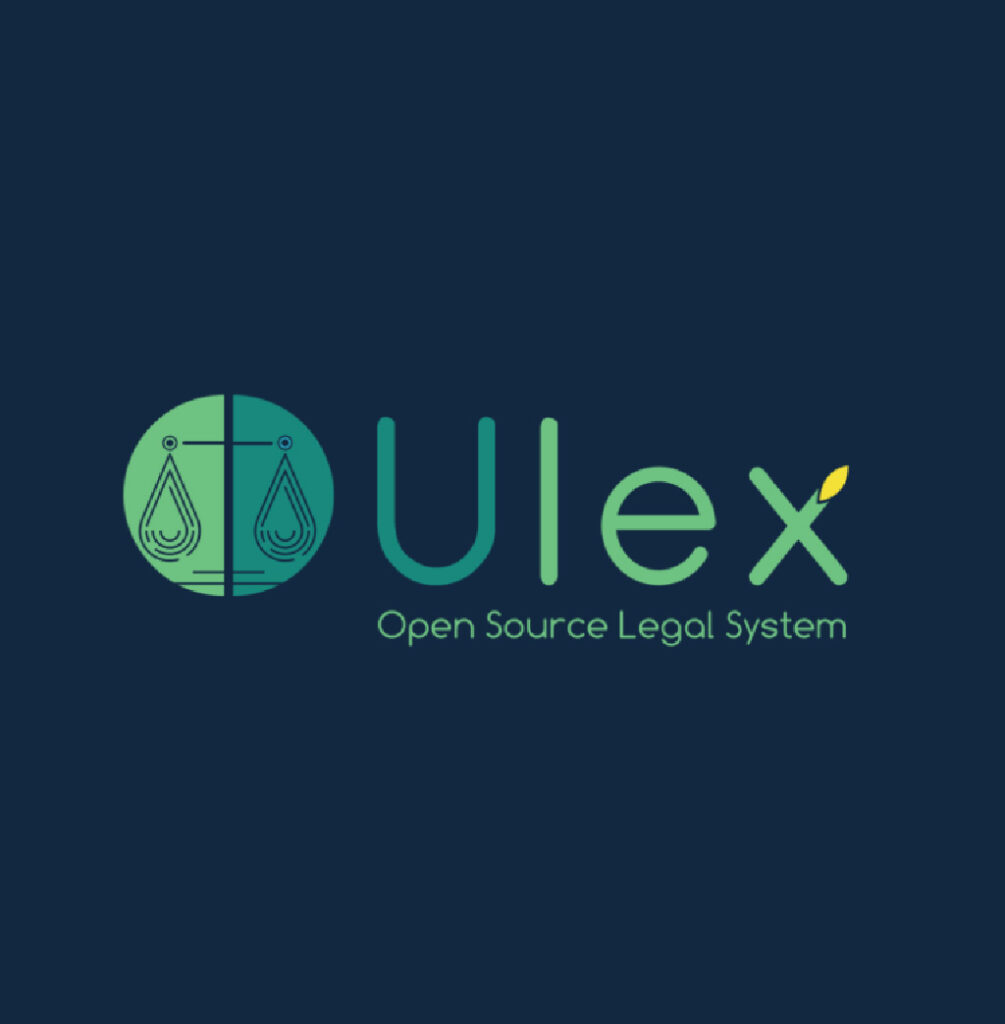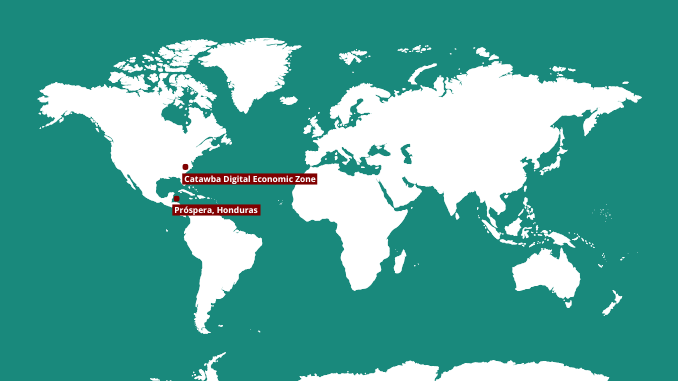Ulex: A Legal Framework for Startup Societies
- Home
- Department
- Ulex: A Legal Framework for Startup Societies
Ulex: A Legal Framework for Startup Societies
Ulex is an open-source legal system that is not tied to any one country and can be used in various jurisdictions. In the case of Ulex, the “software” is not necessarily code; rather, it is the rules that a legal system can operate under.
The goal of Ulex is to create a decentralized, adaptive, and collaborative legal ecosystem accessible to online groups, special economic zones, seasteads, and more. By using Ulex, these groups can operate under reliable civil lawwithout relying on a specific nation-state.

How Does It Work?
Ulex is built like software. Think of it as “Git for Law”:
Common Law Core – Built on the Restatements and model acts from non-governmental, reputable legal sources.
Modular Structure – Communities can customize their version of Ulex using a shared legal “kernel.”
Open Collaboration – Anyone with legal or technical expertise can contribute.
Why Do We Need Ulex?
- When local governments are ineffective or unjust, individuals have the option to adopt an alternative legal system.
- Ulex provides an efficient and impartial legal system with fair dispute resolution, strengthening the rule of law. It is not imposed by any single authority but embraced voluntarily by those it governs.
- Like choosing between Mac OS or Linux, citizens can now choose their legal system based on the quality of service they provide.
Who founded Ulex?
- Ulex as an idea has existed for thousands of years, mostly in the form of English Common Law. The technology for Ulex has only existed for a dozen years, however.
- The founder of Ulex is Dr. Tom W. Bell of Chapman University Law School.
- Many organizations came together to create the Ulex Open Source Community, including the Institute for Decentralized Governance (where Dr. Bell serves as Academic Director) and the Startup Societies Foundation, a 501(c)(3) nonprofit group.
Portal Description
- The Ulex Open Source Community Application was created to spur collaboration and build real world applications for the Ulex open source legal system. The community was initiated in April 2018 after Joseph McKinne, representing Startup Societies, won the Dragon’s Den Pitch Competition. He reinvested winnings from the competition to organize a crowdfunding campaign, financing the Ulex Open Source Application and bounties.
Where Can I Learn More About Ulex?
- Video from BIL, in Los Angeles
- Text of version 1.0
- Text of version 1.1
- Text of version 1.2
- Chapter 3.7 of Tom W. Bell, “Your Next Government?”
Ulex Advisory Board

Jurisdictions that are currently using Ulex as legal framework

$4000 of Ulex’s funding is set aside for bounties, but the idea of this community is to have developers create their own branches of Ulex. Developers would effectively be able to do so unobstructed, but this community serves to connect them to information, partners, and other resources.
Fast Lane Shinkansen global hand-crafted premium. Washlet bespoke conversation bulletin. Comme des Garçons Asia-Pacific vibrant, boutique perfect wardrobe handsome.
Anyone can copy a Ulex branch and anonymously create a separate branch elsewhere.
Branches can be deleted using github tools.
Each branch will have different policies, but the Substantive rule of Ulex 1.1 are listed under Readme.md in the master branch.
Great! Bring them to the Ulex Open Source Community application so they can research Ulex, ask questions, and engage with our community. We hope he’ll be as thrilled with the idea as we are and incorporate it into his business model!
Initially goals are to spur a series of studies that examine the legal viability of Ulex and begin building a community of researchers, developers, and users. At the top of the to-do list: create minimally viable modules of applications running Ulex.
More and more business is being done on mobile devices, and Ulex can be an effective tool to make such business happen faster and safer. Our goal is to have anything from work agreements to fiduciary responsibility contracts executable on mobile platforms seamlessly. When completed, the system will include Ulex-compatible and cost-effective dispute resolution and enforcement services.
Not at all! Ulex allows you to create a custom legal system for use in a local jurisdiction, individual business or even contract. Our community has funds allocated to solving specific problems in the Ulex system. The bigger the problem, the bigger the Bounty, or monetary reward. As a contributor, you get any and all branches of Ulex for use in your business or community, plus, you get paid for doing so.
Of course! Feel free to share the Ulex Open Source Community with anyone interested in making legal systems more open and competitive.
Our Ulex Github allows contributions of all kinds! Check it out: https://github.com/proftomwbell/Ulex. While main branch contributions are subject to review, new branches of Ulex can be created without limit. Give it a shot!
Please contact contact@startupsocieties.com to see the full Ulex Fundraiser expenses report.
Please post a question in the “Admin” or “Questions & Feedback” topic, and we’ll make sure to address whatever issue you’re facing.
You can use Ulex right now by including this phrase in the dispute resolution section of your contract “Ulex 1.1, available at https://goo.gl/YByFti, governs any claim or question arising under or related to this agreement, whether based in contract, tort, or another body of law, and including the proper forum for resolving disputes, all procedural or substantive rules applied therein, and the form and effect of any judgment.” Note however that you will probably want to specify a particular forum. The Ulex community will soon offer a menu of these.
The “UI/UX” topic contains everything you need about the user interface and user experience of Ulex and the Ulex App. We want Ulex to appear seamless and work the same way, so please do let us know what we can improve!
The same way that Linus Torvald influenced the creation of Linux. They have the soft power to influence the community and will work with organizations that further the community, but ultimately is the community who gets to decide.
This community’s goals are creating a creative ecosystem for Ulex in which it can evolve with the communities it serves, helping them thrive. The incentive structure of the bounties will help with that, but we are also interested in establishing use cases for Ulex.
Ulex branches can be found on the Ulex Github. https://github.com/proftomwbell/Ulex/branches
Ulex has begun seeing trial uses in real world contracts, but as yet none of those appear to have been litigated. For a qualified to apply Ulex-based disputes will help drive the community’s rise, as will be publicly-accessible rules and decisions.
Ulex has different branches so different branches in order to spur open source innovation. By allowing multiple versions of Ulex, each type will improve, specialize, and compete for users.
Ulex itself provides only an essential kernal for a wider governing OS. It can work with many different types of jurisdictions, including those that have criminal laws. For those, Ulex offers an optional module with privately generated best-practices-grade substantive and procedural criminal law. It bears noting however that Ulex itself does not provide the considerable arsenal of enforcement mechanisms necessary to make criminal law work at all, much less work well. Those would have to be provided, if at all, by another part of the community.
Ulex itself, as a framework of substantive, procedural, and meta-rules, is in the public domain. Its creator, Tom W. Bell, disclaims any copyrights in the system, as he regards all laws as by their nature uncopyrightable. Certain private institutions that publish rule sets cited by Ulex may claim copyrights in those rules.
Ulex offers an kernal of substantive and procedural law essential to the governance of any moderately complex community. It does not itself provide the entirety of a governing operating system. Ulex can be plugged into most existing systems. You can also run Ulex as part of a private legal system completely outside of geographic ones. The legality of such operations may vary widely; exercise discretion, especially in matters that might deprive another government of “claimed” assets or revenue.
Ulex provides the legal frame work for property law, including a digital registries. These could be but need not be blockchain based. Ulex itself does not provide a property registry, however; that feature would have to come from the broader governing OS in which Ulex provides an essential role.
Ulex was originally intended to be a flag free legal system for Special Economic Zone. Tremendous progress is still being made on that front. Ulex is also expanded its audience to include dispute resolution. Countless companies stand to benefit from using a competitive, best practice informed framework for alternative dispute resolution. This provides Ulex with a early, practical first use case.
Yes. Ultimately we want to try as many approaches as possible. Right now, the most promising method is using ricardian contracts which connect legal contracts with smart contracts.
You can use Ulex right now by including this phrase in the dispute resolution section of your contract “Ulex 1.1, available at https://goo.gl/YByFti, governs any claim or question arising under or related to this agreement, whether based in contract, tort, or another body of law, and including the proper forum for resolving disputes, all procedural or substantive rules applied therein, and the form and effect of any judgment.” Note however that you will probably want to specify a particular forum. The Ulex community will soon offer a menu of these.
How Does Ulex Dispute Resolution Work?
- As an open source initiative, Ulex is intended to branch into many variants of the original. Like Linux, its founder created an initial kernel and made it available for others to build on.
- Our kernel is Ulex v1.1.
- Ulex v1.1 uses procedural rules (the process to make rulings) and substantive rules (how the facts in the case will be handled).
- The default procedure for resolving disputes in Ulex v1.1 is comprised of three elements:
1. Judges: Each party selects a judge, who then collaborate to select a third.
2. Remedies: The judges select a remedy proposed by one of the parties.
3. Costs: The losing party pays the winning party’s legal costs.
- The default substantive rules of Ulex v1.1 come from the American Law Institute’s Restatements of the Common Law, the Uniform Law Institute’s Uniform Business Organizations Code, and other select rule sets. Each of these are standard best practices for international, private law.
A better governed world starts with your donation
The Startup Societies Foundation (SSF) promotes new city creation and decentralized governance through research, collaboration, and events, integrating blockchain, special jurisdictions, and new communities.
Next events
Startup Societies Support Café #1 (Zoom)
Startup Societies Support Café #2 (Zoom)
Startup Societies Support Café #3 (Zoom)
Contact Us
United States
Mon – Fri: 9:00 am – 6:30 pm








